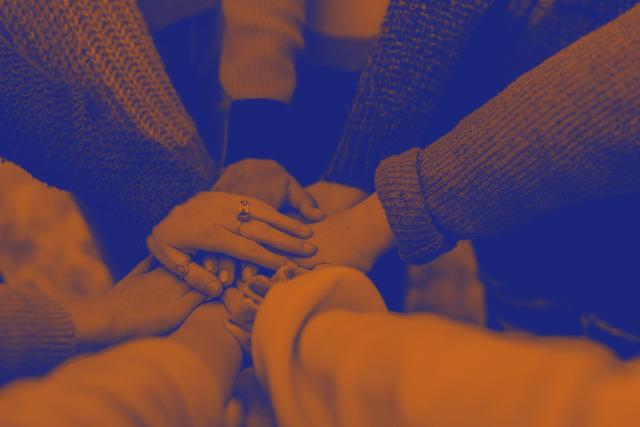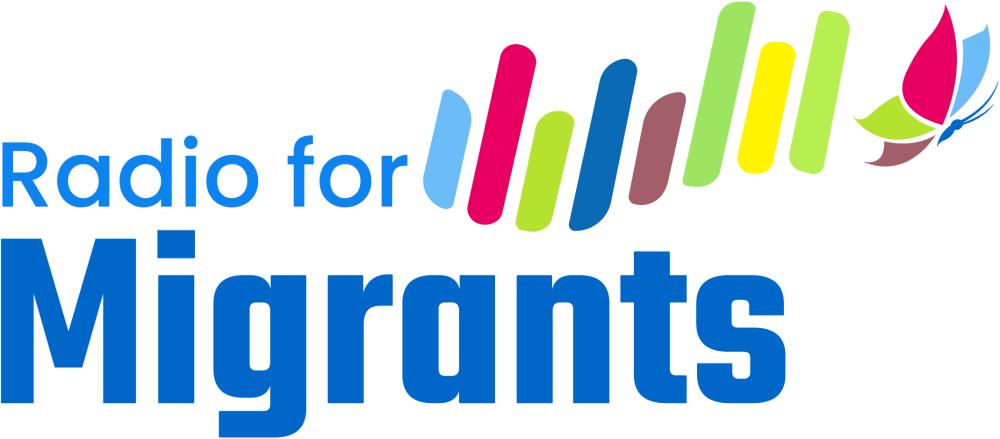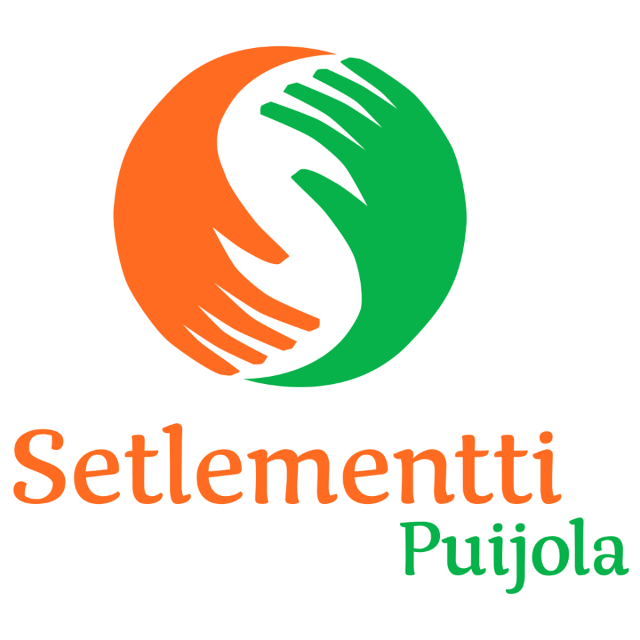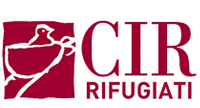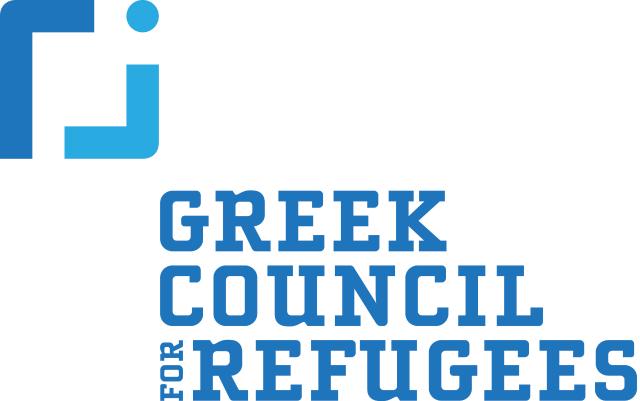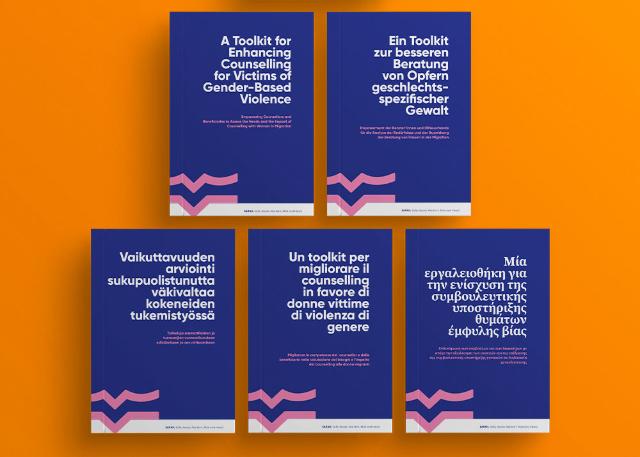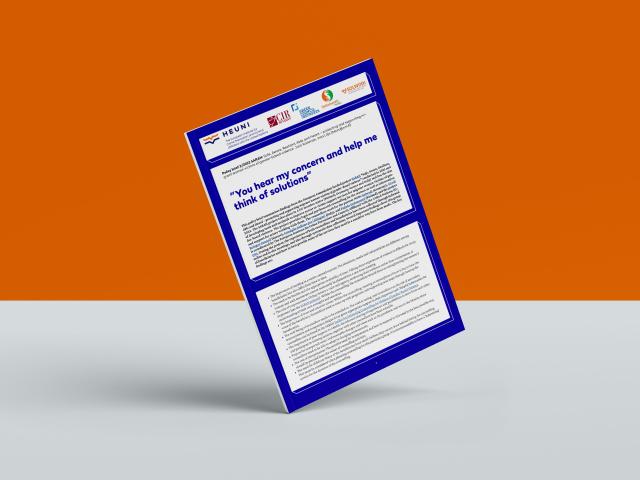SARAH podcasts:
.png/2c49b4e8-20d5-ec10-4a6c-bfa656ceeae7?t=1630404683421&imagePreview=1)
.png/16966f3f-9a85-b559-55f5-d4eb6dd67139?t=1630404719770&imagePreview=1)
You can use a podcast as a discussion opener by sharing it with someone who is going through violence.
The podcast is played at the Radio 4 Migrants station in Nigeria
SARAH Impact Toolkit:
Toolkit for Enhancing Counselling for Victims of Gender-Based Violence - Empowering Counsellors and Beneficiaries to Assess the Needs and the Impact of Counselling with Women in Migration
The concept of this toolkit emerged from the desire of the partner organisations' counsellors to incorporate to the counselling different ways to ensure that women in migration who have experienced gender-based violence are heard. The toolkit can be used to improve the quality and impact of counselling by assisting:
- the beneficiaries to understand their own strengths, resources and priorities
- the counsellor to make informed decisions about the possible steps in supporting the beneficiaries
- organisations and professionals in collecting data for impact evaluation as well as for advocacy.
The toolkit is available to download in English, German, Italian, Greek and Finnish. Feel free to also share this source with others!
Step Forward: A tool for developing an organisational strategy to provide victim-centred support for migrant women victims of gender-based violence
A tool for developing an organisational strategy to provide victim-centred support for migrant women victims of gender-based violence provides an overview of how to create and put into practice an organizational strategy for assisting refugee and migrant women victims of gender-based violence. The strategy places a strong focus on improving the capacity of counsellors – the cornerstones of assistance – to provide the assistance. The framework encourages organisations to assess their current practices, and to develop clear goals, policies, and management practices through participatory processes. By following the steps in this guidance organisations can enhance their understanding of what is needed at the strategic level to develop truly victim-centred models of assistance and to implement and evaluate these regularly.
The cornerstones of the framework for becoming a truly professional expert organisation champion in providing support- for migrant women who have experienced violence include working in a victim-centred manner within a trauma-informed organization, while ensuring the wellbeing of the counsellors.
The framework consists of 5 steps and each of them includes discussion topics, questions for your consideration, some practical guidance and references to additional materials. You can use this tool as a step-by-step checklist and supplement the steps based on the needs and focus areas of your organization.
Step 1: Defining strategic goals
Step 2: Perspectives that support inclusivity
Step 3: Perspectives that support counsellors’ wellbeing
Step 4: Measures for creating impact
Step 5: Continuous evaluation and adaptation
The tool is available to download in English, German, Italian, Greek and Finnish here.
Project information:
The project builds on the outcomes of an EU-funded project Co-creating a counselling method for refugee women GBV victims (CCM-GBV) completed in 2017-2019 including the Handbook and training materials developed in the project.
The project particularly targets women in migration. Women in migration are a diverse group regarding nationality, age, legal and social status, including professional and personal situation and characteristics, as well as reasons why they have left their countries of origin. Their experiences in countries of origin, transit and destination are often commonly related to unequal access to resources, property, education, protection, justice, labour-market and decision making. During the process of migration, women and girls are confronted with additional risks factors which make them particularly vulnerable to violence.
Many refugee/migrant women have lived a lifetime of violence, with different manifestations of gender-based violence targeted against them by different perpetrators since childhood, continued through adolescence, and ongoing in adulthood. Gender-sensitive measures to address these experiences of violence across asylum process, law enforcement, counselling services and prevention programmes are lacking. This project builds on the need for actions identified in our past work as well as by other actors at the EU and national levels. And the outcomes of the project are aimed to be taken by governments and organisations to better protect and assist women in migration, to reduce the risk of GBV and improve the response of service providers to gender-based violence.
The project activities take place in 4 EU Member States: Germany, Greece, Finland and Italy. The project is coordinated by HEUNI, and other partners are Greek Council for Refugees (GCR), SOLWODI Deutschland e.V, Italian Refugee Council (CIR) and Setlementti Puijola in Finland.
In practice we will:
- Organize 70 info cafes for 700 migrant women
- Create 4 podcasts
- Organize 7 policymaker meetings reaching 100 policymakers
- Write a policy brief describing the main challenges in assistance to victims
- Offer 1600 counselling sessions to migrant women victims of violence
- Develop a tool for assessing needs and impact of counselling
- Develop a strategy tool to enhance organizations strategic approach to GBV in the migration contect
- Train 210 professionals to better identify, assist and/or refer migrant women victims of GBV
In the implementation of the project we are committed to the following principles:
Gender-based violence is a human rights violation, and the victim’s have a right to victim-centered services.
Being a migrant/refugee creates additional risks for GBV but not all migrant/refugee women are victims, and we commit to not portraying them as merely victims, but also as persons with agency.
Working in a victim-centred manner is a core-value of this project; ensuring that the rights and dignity of each individual is at the heart of all operations. Each person is treated with respect, so that they are heard and listened to, and decisions regarding the person are done to ensure the best interest of the client. Therefore, the working models used and developed in the project emphasize the importance of delivering services rapidly and sensitively, adhering to the individual needs and aspirations of the victims, and the assistance of each victim in a manner and pace suitable for her. Counsellors are aware of root causes and risk factors related to gender-based violence which ensures that issues around stigma and stereotyping are adequately acknowledged. This kind of victim-centred approach is at the core of each partner organization's way of working.
The project will take into consideration the gendered aspects of crime; more specifically the impacts and consequences of gender-based violence on women, and the specific needs of female victims. Also, the activities are designed to guarantee the access of LGBT women who are affected by GBV to services. To protect LGTB people from unfair treatment, specific attention will be given to current policies and practices in assisting victims that may fail to take into account the diversity of relationships and the obstacles that prevent victims to seek assistance such discrimination or lack of LGTB-sensitive approaches.
For more information contact: Julia Korkman, [email protected]
HEUNI Newsletter:
Subscribe to HEUNI newsletter to follow the project developments.
Policy Brief 2/2022
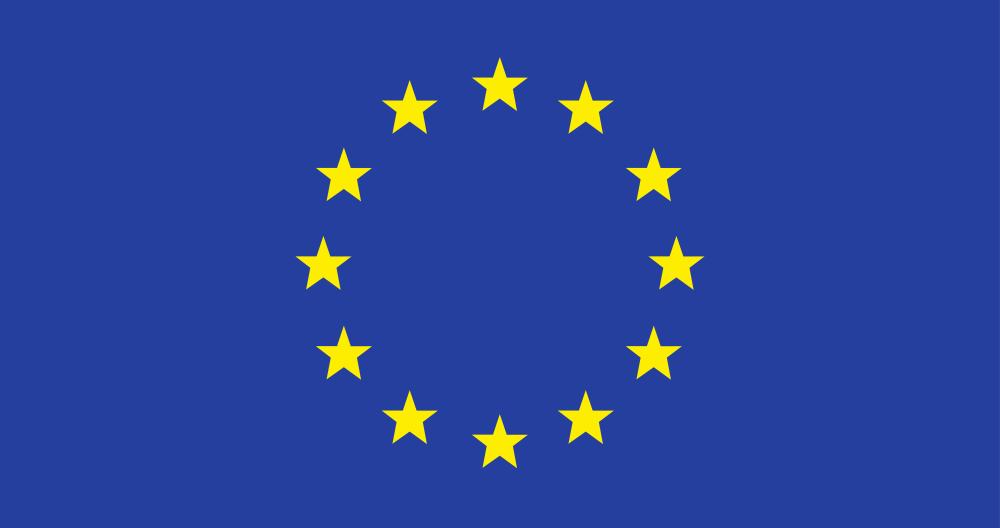
This project is funded by the Rights, Equality and Citizenship Programme (REC 2014-2020).





